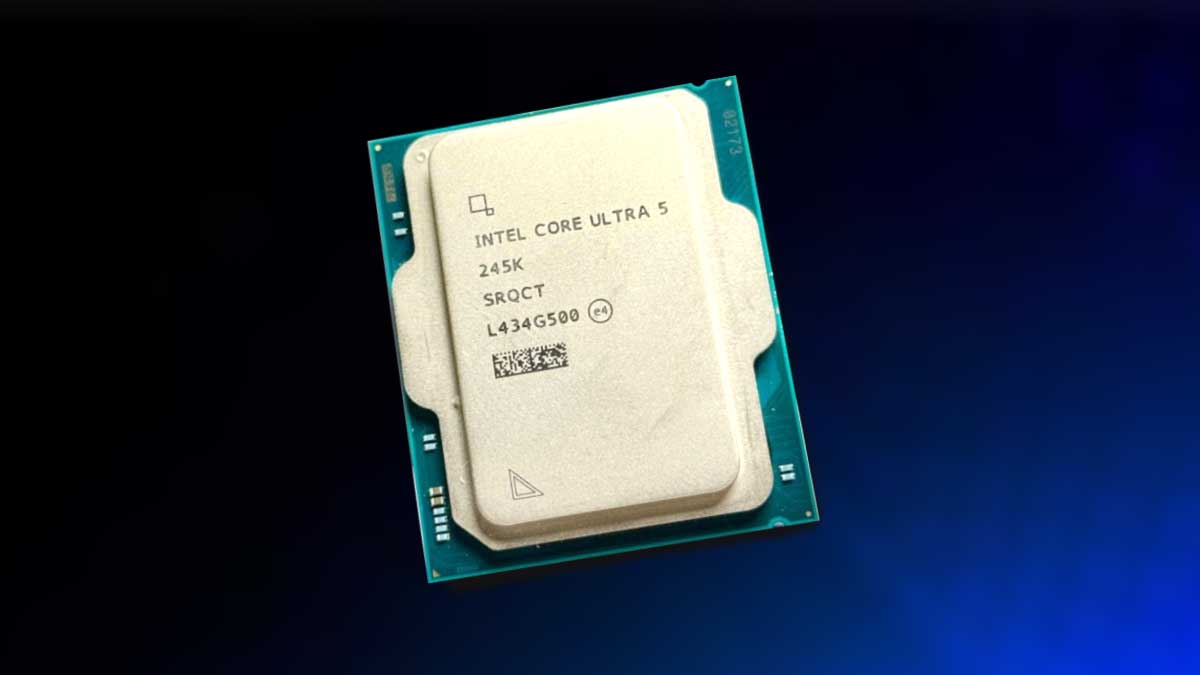- Home
- Billionaires
- Investing Newsletters
- 193CC 1000
- Article Layout 2
- Article Layout 3
- Article Layout 4
- Article Layout 5
- Article Layout 6
- Article Layout 7
- Article Layout 8
- Article Layout 9
- Article Layout 10
- Article Layout 11
- Article Layout 12
- Article Layout 13
- Article Layout 14
- Article Sidebar
- Post Format
- pages
- Archive Layouts
- Post Gallery
- Post Video Background
- Post Review
- Sponsored Post
- Leadership
- Business
- Money
- Small Business
- Innovation
- Shop
Recent Posts
Intel Core Ultra 200 Processors to Get Major Performance Boost

Intel’s Core Ultra 200 desktop processors were initially met with disappointment, as the launch was marred by numerous issues, particularly with performance in gaming. The processors struggled to deliver the expected level of power, leaving many users, especially gamers, disillusioned. However, there may be hope for these chips yet, as Intel plans to release significant updates aimed at addressing their shortcomings. According to two sources familiar with the matter, these updates will focus on areas where the processors lagged behind, such as gaming performance in titles like Cyberpunk 2077, while also improving overall system performance.
Intel’s Core Ultra 200 processors, part of the Arrow Lake family, faced criticism for subpar results across various applications, from gaming to general computing. In particular, the gaming performance was a noticeable weak point, with many gamers reporting poor frame rates and inconsistent experiences compared to expectations. Intel, however, has recognized the issues, and sources within the company have pointed to updates that will address both software and hardware-level problems.
While there has been no official release date for these updates, Intel’s Robert Hallock provided some insights during an interview with tech channel HotHardware. Hallock revealed that Intel had identified several factors contributing to the lackluster performance of the Core Ultra 200 processors, including issues at both the OS and BIOS levels. These are significant revelations, as they suggest that the processors’ struggles were not entirely due to hardware limitations but were compounded by software and firmware issues.
Hallock’s admission has garnered attention for a few reasons. It sheds light on the possible lack of optimization, particularly between the processors and the operating system. The discrepancies in performance between various reviewers’ systems could be attributed to this misalignment, with some systems performing significantly worse than others. This could explain why the Core Ultra 200 series, despite its cutting-edge hardware, fell short of expectations in terms of gaming performance and overall system capabilities.
When questioned about the rushed launch of the Core Ultra 200 processors, Hallock denied that external pressures, such as competition from AMD’s upcoming 3D V-Cache processors, played a role in the chip’s underwhelming performance. However, it is conceivable that Intel may have faced internal pressures to launch the product within a certain fiscal quarter, potentially leading to the decision to release the processors before they were fully optimized.
Regardless of the reasons behind the lack of performance, Intel is now focused on resolving these issues. The updates, which are expected to come in the form of BIOS and OS-level fixes, could result in substantial performance improvements. This is especially critical given that Intel’s new processors require a significant investment from consumers, particularly for those upgrading from older systems that used DDR4 memory. The Core Ultra 200 series, however, necessitates DDR5 memory, adding to the cost of upgrading for potential buyers.
As of now, there has been no official word from Intel regarding the release of these updates, but industry insiders, such as overclocker SkatterBencher on X (formerly Twitter), have hinted at an impending microcode fix that could improve the voltage frequency behavior of the processors. This particular aspect of the fix is crucial, as voltage and frequency control plays a significant role in overall processor performance, particularly under load.
Additionally, motherboard manufacturer ASRock has confirmed that a new driver, specifically designed for the Platform Power Management (PPM) system, is available for download for Core Ultra 200 systems. This new driver is claimed to improve performance by up to 13%, particularly in terms of processor frequency and voltage. ASRock’s mention of the PPM driver aligns with Intel’s plans to tweak the voltage-frequency behavior of the Core Ultra 200 processors, signaling that the company is serious about boosting the performance of its latest chips.
These developments come as good news for Intel, as they show that the company is actively working to address the shortcomings of its Core Ultra 200 processors. While the processors were initially disappointing, Intel’s commitment to providing free updates and fixes could turn the tide and make the chips more competitive in the market. AMD’s 3D V-Cache processors are expected to come with a premium price tag, which could make Intel’s upcoming performance improvements all the more attractive to budget-conscious consumers looking for powerful processors at a more reasonable cost.
Intel’s Core Ultra 200 processors, despite their rocky launch, have the potential to become more competitive as these updates roll out. While AMD’s Ryzen 9000 series, including its 3D V-Cache chips, is expected to dominate high-performance computing, the standard Ryzen models have faced their own set of challenges, including a lackluster launch and early performance issues. This could give Intel an opportunity to close the performance gap and make its processors more appealing to a broader audience.
In conclusion, Intel’s Core Ultra 200 processors, despite their underwhelming debut, may be on the brink of a significant turnaround. The company has identified key performance issues and is actively working on free updates to address them. While it remains to be seen exactly when these updates will arrive, the news is promising for anyone who owns or is considering purchasing these processors. With potential improvements in gaming performance, power management, and overall system speed, Intel’s efforts could position the Core Ultra 200 series as a strong contender in the desktop processor market once again.
Recent Posts
Categories
- 193 Countries Consortium Partner1
- 193cc Digital Assets2
- 5G1
- Aerospace & Defense48
- AI37
- Arts3
- Banking & Insurance11
- Big Data3
- Billionaires1,467
- Boats & Planes1
- Business332
- Careers13
- Cars & Bikes79
- CEO Network1
- CFO Network17
- CHRO Network1
- CIO Network1
- Cloud10
- CMO Network18
- Commercial Real Estate7
- Consultant1
- Consumer Tech194
- CxO1
- Cybersecurity73
- Dining1
- Diversity, Equity & Inclusion4
- Education7
- Energy8
- Enterprise Tech29
- Events11
- Fintech1
- Food & Drink2
- Franchises1
- Freelance1
- Future Of Work2
- Games149
- GIG1
- Healthcare79
- Hollywood & Entertainment203
- Houses1
- India’s 1000 Richest1
- Innovation46
- Investing2
- Investing Newsletters4
- Leadership65
- Lifestyle11
- Manufacturing1
- Markets20
- Media327
- Mobile phone1
- Money13
- Personal Finance2
- Policy569
- Real Estate1
- Research6
- Retail1
- Retirement1
- Small Business1
- SportsMoney42
- Style & Beauty1
- Success Income1
- Taxes2
- Travel10
- Uncategorized14
- Vices1
- Watches & Jewelry2
- world's billionaires1,436
- Worlds Richest Self-Made Women2
Related Articles
Valheim: The Indie Phenomenon That Captured the Hearts of Gamers Worldwide
Since the early access release of Valheim, an indie Viking survival game...
By Worlds GamesJanuary 5, 2025Geomagnetic Storm to Brighten Northern Lights in 18 States
Tonight, the northernmost states are expected to witness a spectacular display of...
By 193cc Agency CouncilDecember 31, 2024Record-Breaking Northern Lights to Continue Into 2025
The year 2024 witnessed a remarkable peak in Northern Lights activity, with...
By 193cc Agency CouncilDecember 31, 2024NASA’s Parker Solar Probe Survives Historic Sun Encounter
NASA’s Parker Solar Probe has achieved a historic milestone, surviving its close...
By 193cc Agency CouncilDecember 27, 2024














Leave a comment